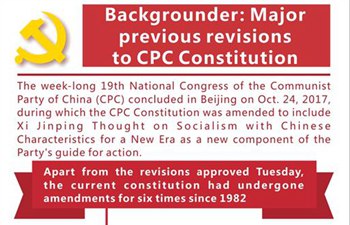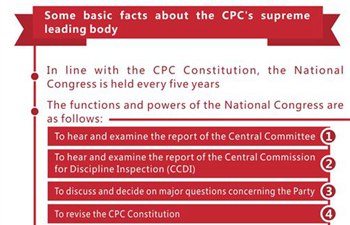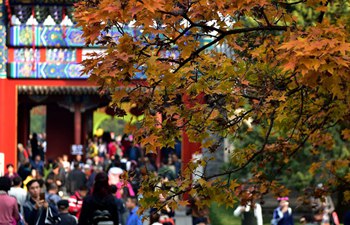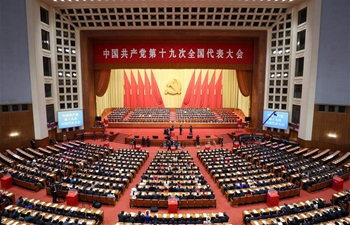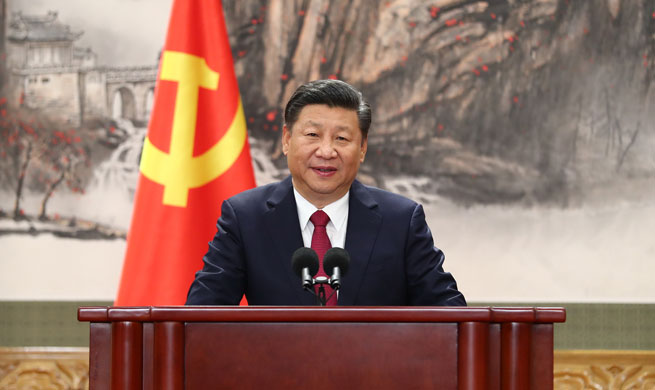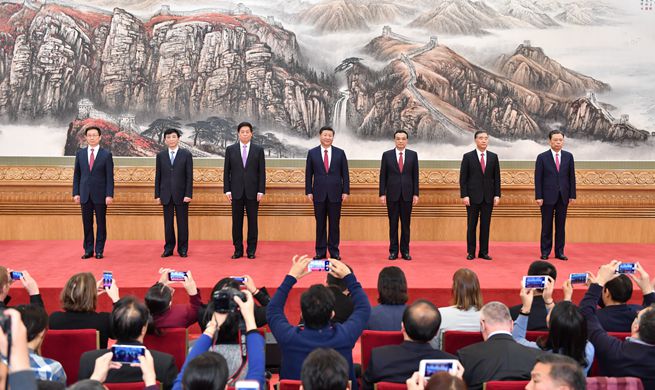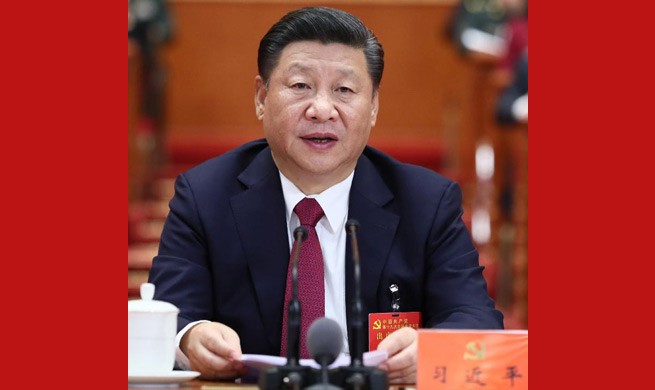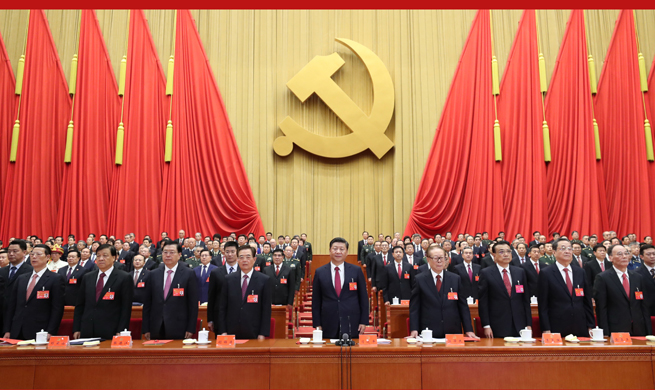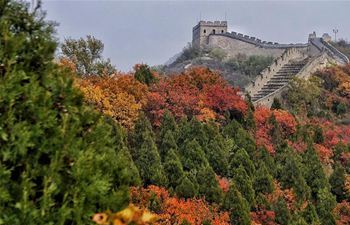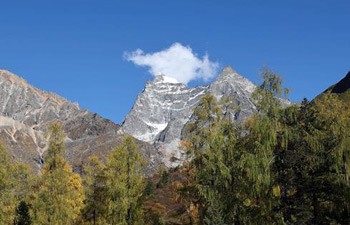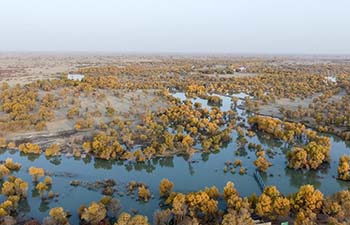BEIJING, Oct. 25 (Xinhua) -- Although China has made achievements in air pollution control in recent years, a tough battle remains, minister of environmental protection Li Ganjie has said.
Speaking at a press conference in Beijing Monday, Li said from 2013 to 2016, the density of PM2.5 fell 33 percent in the Beijing-Tianjin-Hebei region.
PM2.5 density measures the concentration of small particles in the air and is often used as a gauge of smog.
Figures in the Yangtze River and Pearl River deltas dropped 31.3 percent and 31.9 percent respectively during the same period, according to Li.
However, the Beijing-Tianjin-Hebei region has seen a rebound in PM2.5 and PM10 density in the first half of the year, with the two indicators up 14.3 and 13.2 percent, compared to the same period last year.
In January 2013, most parts of northern China were hit by severe air pollution, with Beijing enveloped by heavy smog for more than 20 days during the month.
In 2013, PM2.5 density became an important indicator to gauge air quality across China. Since then, the Chinese government has made a series of policies to reduce air pollution.
After three years of efforts, the average density of PM2.5 in Beijing dropped to 73 micrograms per cubic meters, down 18 percent from 2013 levels. Heavy air pollution days in Beijing dropped from 58 days in 2013 to 39 days in 2016, according to the Air Quality Index (AQI).
Under Chinese air quality standards, an AQI below 100 is defined as a good air quality day. An average daily AQI above 200 indicates heavy air pollution. People including children and elderly people are suggested not to participate in outside activities.
In 2016, the average concentration of PM2.5 in Tianjin city was 69 micrograms per cubic meters and 70 in Hebei Province, falling by 28.1 and 35.2 percent respectively, compared with 2013.
Nationwide, air quality in some 338 cities at the prefecture level and above has improved, according to the Ministry of Environmental Protection (MEP).
Since coal burning is the primary source of air pollution in the Beijing-Tianjin-Hebei region, the area has started to reduce and ban coal use.
For instance, the volume of coal consumption in Beijing was 23 million tonnes in 2013, the figure declined to below 10 million tonnes this year. According to a plan revealed in 2014, Beijing will ban coal use in its downtown areas in 2020, covering Dongcheng, Xicheng, Chaoyang, Haidian, Fengtai and Shijingshan districts.
Shu Yinbiao, chairman of the State Grid, said the State Grid would help promote clean energy heating in north China in the winter. Some areas in Beijing and Tianjin will become "coal free zones."
Nearly 200,000 households in Wuqing District of Tianjin will bid farewell to an of the era of burning coal for heating and cooking. More than 1.2 million households in Langfang and Baoding cities of Hebei will use clean energy by the end of October.
He Hong, a scientist at the Chinese Academy of Sciences, said air pollution in China was caused by multiple reasons, such as the development of industries and the surge of vehicles, which generate massive emissions.
"But it is different from the air pollution that appeared in London and Los Angeles in the twentieth century. Smoke in London was mainly caused by burning coal, while in Los Angeles it was mainly because of too many vehicles," He added.
Areas affected by air pollution in China are much larger than those cities in Britain and the United States. "Addressing air pollution in China is much more complicated than that in European and American countries. And it's also hard to solve the problem in a short term," He said.
Minister of Environmental Protection Li stressed that China was determined to fight against air pollution.
The MEP has launched a campaign against heavy air pollution in autumn and winter in the Beijing-Tianjin-Hebei region and surrounding areas from 2017 to 2018, according to Li.
The campaign will mainly focus on curbing pollution by industrial enterprises, cutting coal consumption and improving emergency responses to heavy pollution weather.




